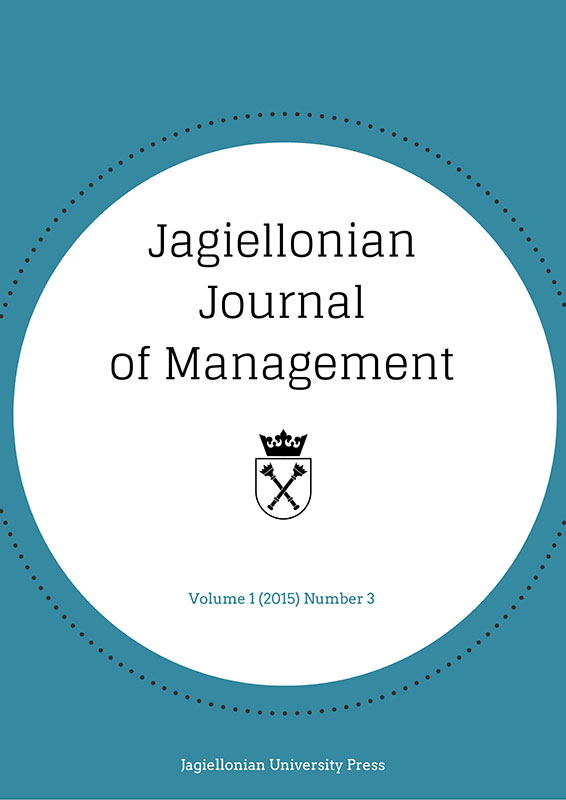Perception of work environment among women and men – workload and autonomy in relation to job engagement
Perception of work environment among women and men – workload and autonomy in relation to job engagement
Author(s): Magdalena Jaworek, Anna Maria DylągSubject(s): Economy, Marketing / Advertising, Human Resources in Economy
Published by: Wydawnictwo Uniwersytetu Jagiellońskiego
Keywords: workload; job control; work engagement
Summary/Abstract: This article refers to the phenomenon of employee engagement as one of the key aspects of contemporary human resources management. The concept of professional engagement is a multi-dimensional approach relating to the positively understood effects of work, welfare of on employee, and optimization of the organization and its environment. Job engagement is believed to be strongly related to such processes as introduction of change in organizations, quality and performance issues, customer satisfaction or health, and effectiveness of people and organizations. Following the widely recognized in occupational health psychology model of Karasek (1979) and its further expansions, the authors of this article look upon work engagement as a subjective, psychological state of employees that emerges in certain circumstances, namely a “healthy” work environment. Following Kara-sek’s thinking it was hypothesised that perception of managable workload and sufficient autonomy will lead to the most required effects, such as higher levels of job engagement and its positive consequences.Thus, the specific purpose of this article is to investigate the way employees perceive their work environment in terms of workload and job autonomy in relation to job engagement. The empirical research was conducted from the perspective of the analysis of professional activity depending on the gender of respondents, limitations of social roles and the situation of women in Poland. The authors of the article conducted a questionnaire survey on a sample of 748 economically active persons, both women and men. The analyses showed statistically significantly higher levels of all three examined dimensions of job engagement (i.e. absorption, dedication, vigour) in women compared to men, together with a lower level of control (professional autonomy) declared by women. Control was a clear predictor of work engagement, to a similar extent in both men and women. In contrast, the relationship of workload with absorption, dedication and vigour proved to be variable and dependent on gender.
Journal: Jagiellonian Journal of Management
- Issue Year: 1/2015
- Issue No: 3
- Page Range: 155-174
- Page Count: 20
- Language: English

